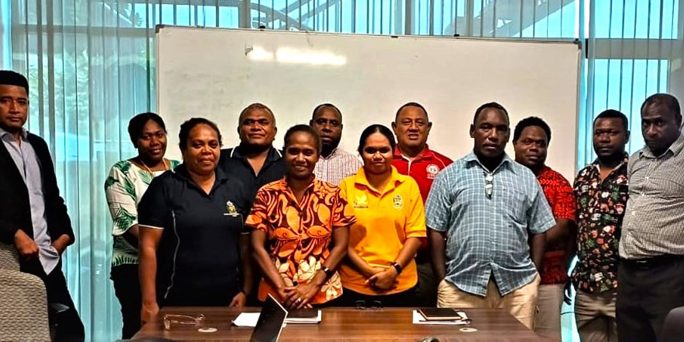A two-hour awareness session on disability inclusion was recently facilitated at the Ministry of Traditional Governance, Peace, and Ecclesiastical Affairs (MTGPEA) by the Ministry of Health and Medical Services, National Rehabilitation, and Disability Division, with support from the WHO Country Office.
The session targeted Heads of Divisions and operational officers, with a total of eleven (11) participants, including both technical and corporate officers.
The activity is part of a scheduled series aimed at socializing the Solomon Islands National Disability Inclusive Development Policy 2023-2031 (SINDIDP) and the United Nations Convention on the Rights of Persons with Disabilities (UNCRPD), with a focus on mainstreaming disability across sectors and levels.
The Director of the Policy Development Division Morris Maitaki, acknowledged the challenges in advancing policies through government processes but expressed optimism, noting that it is encouraging to see the policy progress to this stage.
He emphasized the Ministry’s responsibility in mainstreaming disability into its policies and programs, noting that disability inclusion is relevant because persons with disabilities also need peace.
He highlighted the importance of awareness and saw opportunities to extend efforts to the provinces.
His particular interest is in disability education and training, which he believes promotes empowerment. Through his involvement in these areas, he has seen how persons with disabilities are empowered to live just like everyone else in the community.
In her contribution, Deputy Secretary Mrs. Emily Kupenga stated that, MTGPEA has a responsibility to incorporate disability inclusion in its programs and activities, especially as the convention has been ratified.
The Ministry, therefore, has an obligation to contribute to its implementation and reporting.
She also emphasized that, through their support to churches, the Ministry has an opportunity to promote disability inclusion as well as advocating for it through traditional governance structures.
Other contributors acknowledged the importance of international cooperation, donor, and stakeholder support in implementing the policy and the UNCRPD.
They also stressed the need for accessible infrastructure, improved communication in areas such as sign language, the progression from inclusion to equity in systems and services, and the importance of disability legislation to establish a legal commitment to disability inclusion in the country’s development.
In concluding the session, the Director of the MHMS National Rehabilitation and Disability Division, Mrs. Elsie Taloafiri, explained that disability inclusion is a progressive journey that requires collective effort to create an inclusive society.
This involves removing barriers and replacing them with enablers to facilitate the participation of persons with disabilities in areas of their interest as so as accessing services.
On behalf of MHMS, Mrs. Taloafiri expressed her gratitude to the Permanent Secretary, Deputy Secretaries, Directors, Deputy Directors, and Operational Officers for organizing, attending, and actively participating in the session.
- MHMS









